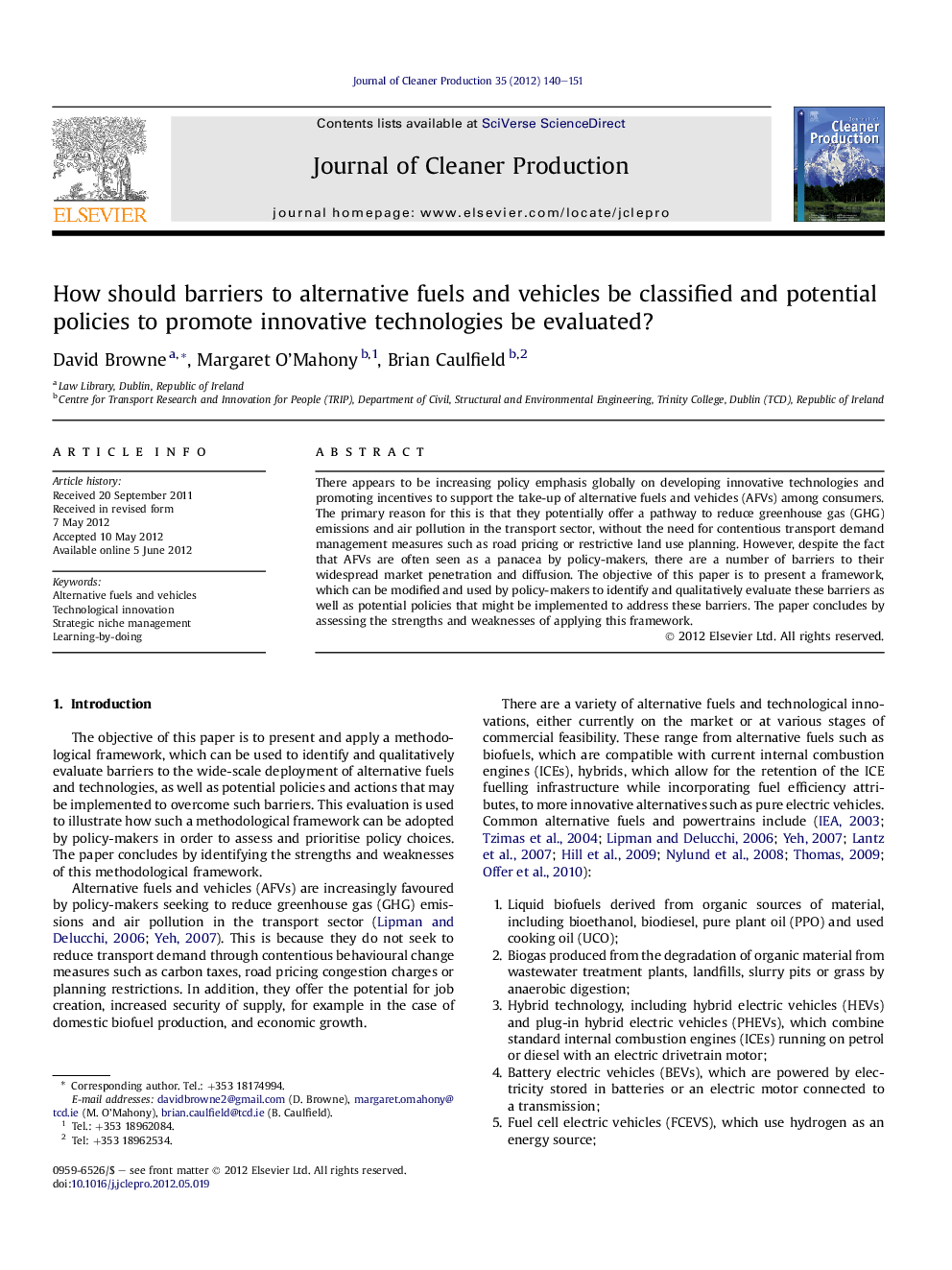| Article ID | Journal | Published Year | Pages | File Type |
|---|---|---|---|---|
| 8108072 | Journal of Cleaner Production | 2012 | 12 Pages |
Abstract
There appears to be increasing policy emphasis globally on developing innovative technologies and promoting incentives to support the take-up of alternative fuels and vehicles (AFVs) among consumers. The primary reason for this is that they potentially offer a pathway to reduce greenhouse gas (GHG) emissions and air pollution in the transport sector, without the need for contentious transport demand management measures such as road pricing or restrictive land use planning. However, despite the fact that AFVs are often seen as a panacea by policy-makers, there are a number of barriers to their widespread market penetration and diffusion. The objective of this paper is to present a framework, which can be modified and used by policy-makers to identify and qualitatively evaluate these barriers as well as potential policies that might be implemented to address these barriers. The paper concludes by assessing the strengths and weaknesses of applying this framework.
Related Topics
Physical Sciences and Engineering
Energy
Renewable Energy, Sustainability and the Environment
Authors
David Browne, Margaret O'Mahony, Brian Caulfield,
